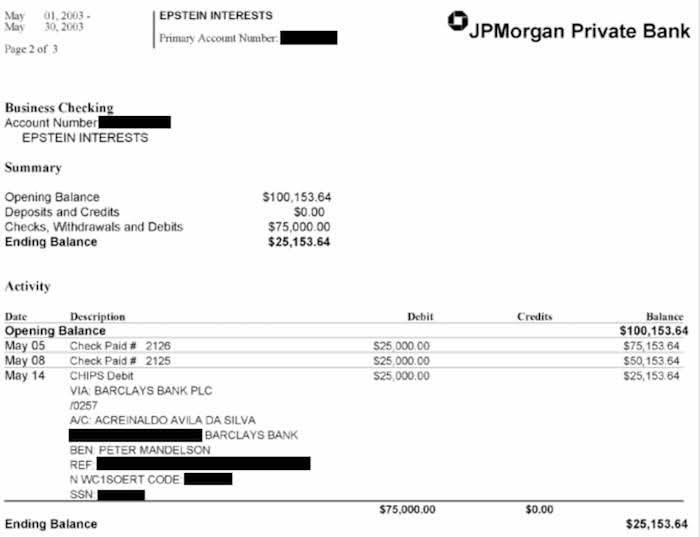Politics
Start of Term Report: Labour in Wales

PROFESSOR Roger Awan-Scully writes:
I have used this point in the political calendar – the return after the summer recess – to assess the current electoral standing of the main parties in Wales.
Over the next couple of weeks, I intend to revive this custom, and address a single, simple question: with just a few months until the Senedd election, where do each of the main parties stand?
I begin this series of pieces with an assessment of the position of Wales’ long-dominant party, Labour.
A good place to start assessing the immediate prospects for a party is to review its immediate past. For Labour that recent past has been problematic. The December 2019 general election saw the party once again come first in Wales in both votes and seats – for the 27th general election in a row. But such an outcome has rarely felt less victorious.
Across the UK, Labour suffered their worst post-war general election defeat. Even in its ultimate bastion of Wales, Labour lost six parliamentary seats, thus achieving their lowest number of Welsh MPs since the debacle of 1983; the party also saw its vote share drop by a full eight percentage points on 2017 – a decline that was actually slightly worse than their Britain-wide average.
The closer you looked at the general election result for Welsh Labour, the worse it got.
Labour’s vote share fell in 39 of the forty Welsh seats (with exception being Montgomeryshire, where they were never remotely in the running).
In north Wales, only Mark Tami hanging on by a whisker in Alyn and Deeside prevented a complete Labour wipeout, and even seats like Wrexham that had been Labour for decades were lost.
Yet while north Wales was where the map changed colour most obviously, in other places Labour’s decline was even starker.
There were seven seats, all in south Wales, where the fall in Labour vote share was greater than in any of the six seats that were lost. Even in many places where the electoral map remained red, Labour was in significant retreat.
And the December disaster was not a one-off.
In the unplanned for European election earlier in 2019, Welsh Labour accrued their lowest vote share at any Wales-wide election since before World War I, and finished behind Plaid Cymru in such a contest for the first time ever.
The months that followed saw Welsh Labour’s opinion poll ratings, for both Westminster and the Senedd, reach the lowest levels ever recorded; they also saw the Labour candidate barely saving his deposit in the Brecon and Radnor by-election.
Since the general election, of course, an enormous amount has changed. One thing that will surely be of long-term importance is that the UK party is now led by Sir Keir Starmer, not Jeremy Corbyn.
While the circumstances of recent months have limited Starmer’s ability to reach out to the British public, the polling evidence already indicates him doing better with them than his predecessor ever managed. But those circumstances – the Covid-19 pandemic and its manifold implications – have become the defining political reality of the present.
In Wales, as across Britain as a whole, Labour’s poll ratings have largely been driven by public evaluations of the Conservative UK government’s handling of Covid. In the first few weeks of the crisis (as was seen in the April Welsh Political Barometer poll), the public largely ‘rallied to the flag’; these tendencies were reinforced for a while by personal sympathy extended to a severely unwell Prime Minister Johnson. As public evaluations of the UK government’s handling of Covid-19 have subsequently worsened, the electoral position of Labour has improved.
It has long been the case that Welsh devolved elections are influenced by the Britain-wide political context. But to an even greater extent than usual, Welsh Labour’s electoral prospects for May 2021 are likely to be shaped by factors wholly out of its control.
The most obvious of these factors is Covid – the development of the disease and treatments for it, the manifold social and economic implications of the crisis, and public evaluations of how the UK government addresses these problems. But another important issue will likely be Brexit, a project that is, of course, very closely identified with Prime Minister Johnson.
Having formally left the EU at the end of January 2020, the UK is due to depart the union’s economic space by the end of this calendar year; how smoothly that occurs will do much to shape public reactions to the Conservatives and, in consequence, the political fortunes of Labour.
One Britain-wide factor that is surely positive for Welsh Labour is that they are no longer shackled to the electoral corpse of Corbynism. Yet even that positive may be limited in value: in Wales, as across Britain, it is likely to take some time for damage done to the Labour brand to be repaired.
When you have been publicly punching yourself in the face for nearly five years, it takes a while for voters to forget.
Having said all that, Welsh Labour can still shape its own electoral fate.
How the Welsh Government has handled Covid within Wales will surely be subject to extensive scrutiny over the next few months. The outcome to the Senedd election will also affected by the effectiveness of campaigning and leadership within Wales. In these respects, things are looking rather better for Labour than they were. Mark Drakeford’s first year as Welsh Labour leader could scarcely have gone much worse: not only were there the election and polling results for the party discussed above, but public evaluations of him personally were similarly dreadful. Large proportions of Welsh voters didn’t know who he was, and those who did were generally unimpressed.
But the Covid crisis has substantially enhanced the First Minister’s public visibility, and the seriousness of the crisis has played to his strengths. Mark Drakeford will never be a natural at ‘retail politics’, but the most recent Welsh Political Barometer poll suggested, for the first time ever, that he could become an electoral asset for his party next May rather a significant liability.
The electoral battleground onto which Welsh Labour and their opponents will march is one defined by the 2016 result. That constituted an overwhelmingly successful rearguard action by Welsh Labour: against a difficult UK-wide context their vote share fell substantially on 2011, yet the party lost only one seat.
Many seats that Labour had won very comfortably in 2011 became significantly more marginal in 2016, whereas seats they had come close to gaining five years previously now receded from view. Thus, the results from 2016 show that there are nine Labour-held constituencies that could fall on a lower swing than would needed for Labour to gain their most marginal target seat of Aberconwy (where Labour would need a 3.35 percent swing to gain the seat, coming from third place).
While some of the apparently marginal seats from 2016 (such as Cardiff West and Blaenau Gwent) may present a misleading picture due to specific local circumstances, the overall picture suggested by the above statistic is surely correct: Welsh Labour in 2021 have much more potential to lose seats than to gain them.
Some geographical nuance is needed, however. In the North Wales electoral region, two Labour seats – Vale of Clwyd and Wrexham – are obviously marginal. However, on a difficult night for Labour where they lost both to the Conservatives, they might well gain a list seat in partial compensation, limiting their overall losses to one.
In Mid and West Wales, Labour’s potential losses are probably also capped at one seat: if Lee Waters were to be defeated in perennially-marginal Llanelli that would solidify even further the party’s two regional list seats.
It is in south Wales were the potential action lies.
Labour’s continued dominance of the Senedd is based on their grip over the constituency seats in the three southern electoral regions. The majority of these seats have been uninterruptedly Labour for the entire lifetime of the Senedd; indeed in South Wales West the total number of constituency contests Labour have ever lost is zero.
The limited number of regional list seats here is wholly insufficient to compensate the other parties proportionally for Labour’s constituency dominance. The converse of this is that any Labour losses here would be pure losses: the party would need to sustain multiple constituency defeats in any one region before it became likely to gain any list seats in compensation.
If the non-Labour forces in the Senedd are ever to crack Labour’s dominance of the chamber (at least under the current electoral system) then they have to make serious inroads into the south Wales constituencies: there is simply no alternative.
The next Welsh Political Barometer poll (coming soon!) will provide the latest evidence on how Labour and their opponents are currently doing.
But no party has yet finished within ten seats of Labour at a Senedd election. It would take a brave or foolhardy person to bet against their dominance of devolved politics ending in May 2021.
international news
Mandelson quits Labour over Epstein controversy

Former cabinet minister says stepping down is ‘in best interests of the party’ as questions raised over historic payments
LORD MANDLESON has resigned his membership of the Labour Party, saying he does not want to cause “further embarrassment” following renewed controversy over his past links to convicted sex offender Jeffrey Epstein.
The former cabinet minister and one-time UK ambassador to the United States confirmed his decision in a letter to Labour’s general secretary after fresh documents released by the US Department of Justice appeared to reference him in connection with Epstein’s finances.
The files suggest that three payments of $25,000 — totalling $75,000, about £55,000 at today’s exchange rates — were allegedly made to Peter Mandelson in 2003 and 2004.
Lord Mandelson said he had “no record or recollection” of the transactions and believes the allegations may be false, but intends to investigate the matter himself.
In his resignation letter, he wrote that he felt “regretful and sorry” to be linked again to what he described as the “understandable furore” surrounding Epstein.
He added that stepping down from party membership was the responsible course of action while he reviewed the claims.
“I do not wish to cause further embarrassment to the Labour Party,” he said. “I have dedicated my life to the values and success of the party and believe I am acting in its best interests.”
Ambassador role ended
Lord Mandelson had been appointed the UK’s ambassador to Washington by Prime Minister Keir Starmer in December 2024.
However, he was removed from the post last year after earlier revelations about his past friendship and contact with Epstein, including emails showing communication after the financier’s 2008 conviction.
The latest release of files has also included photographs said to show Lord Mandelson alongside an unidentified woman. He said he could not place the location or circumstances of the images.
There is no suggestion that appearing in the documents or photographs indicates criminal wrongdoing.
‘Deep regret’
Earlier this weekend, Lord Mandelson reiterated his regret for ever having known Epstein and apologised “unequivocally” to the women and girls who suffered abuse.
“I want to repeat my apology to the women and girls whose voices should have been heard long before now,” he said.
Epstein died in prison in 2019 while awaiting trial on sex trafficking charges, but investigations into his network of associates continue to generate political fallout on both sides of the Atlantic.
Labour has not yet issued a detailed statement beyond confirming it had received Lord Mandelson’s resignation.

News
Policing powers stay with Westminster as devolution debate reignites in Wales

THE UK GOVERNMENT has ruled out handing control of policing and criminal justice to Wales, triggering fresh political debate over whether the Senedd should ever take responsibility for law and order.
South Wales Central Conservative MS Andrew RT Davies said ministers were “right” to block further devolution, warning that separating Welsh forces from England would weaken efforts to tackle organised and cross-border crime.
His comments follow an exchange in the House of Commons, where Liz Saville-Roberts pressed the Home Secretary on transferring powers to Cardiff Bay. The Government confirmed it does not believe policing and criminal justice should be devolved.

“Must reflect the reality on the ground”
Mr Davies said proposals from Plaid Cymru and other devolution campaigners ignore how crime and communities operate in practice.
“The Senedd must not be put in charge of policing,” he said.
“Senedd ministers have an appalling track record on law and order. As senior police officers say, reforms must reflect the reality that many Welsh communities look east towards England far more than they do to other parts of Wales.”
Senior officers have echoed that concern.
Amanda Blackman, Chief Constable of North Wales Police, recently said her force area is “very much connected from a criminality perspective” to Merseyside and Cheshire.
“Our population move, if you like, is more east to west, west to east than it is north to south,” she said, pointing to the daily flow of commuters, shoppers and offenders across the border.
Long-running constitutional argument
Wales currently has four territorial forces – Dyfed-Powys, South Wales, Gwent and North Wales – but funding, legislation, prisons and the courts all remain under Westminster control.
Supporters of devolution argue this creates a “jagged” system, where services like health, housing and education are run by the Senedd but justice is not.
Plaid Cymru has repeatedly called for Wales to follow Scotland and Northern Ireland, both of which run their own justice systems.
They say decisions made in Cardiff could better reflect Welsh priorities, invest more in prevention, and link policing with mental health, youth services and social care.
A Plaid source said: “Communities in Wales should not have to rely on London to decide how their streets are policed. Justice should sit alongside the other services that deal with the causes of crime.”
Cost and complexity concerns
But critics warn that splitting away from England could come at a high price.
Establishing a separate legal and prison system would mean new administrative structures, courts oversight, inspection bodies and funding arrangements.
There are also practical questions around serious organised crime, counter-terrorism and specialist units that currently operate across England and Wales.
Former policing leaders have previously cautioned that criminals do not respect borders, and intelligence-sharing could become more complicated if systems diverge.
For rural areas such as Mid and West Wales, including Pembrokeshire, officers often work closely with English counterparts on drugs, county lines and cross-border burglary gangs.
Little appetite for change – for now
With the current Government making clear it has no plans to devolve the powers, the issue appears unlikely to change in the short term.
However, with constitutional reform regularly debated ahead of future elections, policing remains a live political question.
For now, responsibility for law and order stays firmly with Westminster – but the argument over who should control Wales’ justice system looks set to continue.
News
Pembrokeshire MSs Meet Conservative Leader in Cardiff Bay

Visit comes as campaigning steps up ahead of the Senedd elections on May 7
PEMBROKESHIRE Conservative Members of the Senedd were among those meeting Opposition leader Kemi Badenoch in Cardiff Bay on Friday, as political parties increase campaigning ahead of the Senedd elections.
Samuel Kurtz MS, Welsh Conservatives Group Chair, welcomed Ms Badenoch alongside Darren Millar MS and Conservative colleagues during her visit to the Senedd. Discussions focused on the party’s priorities for Wales, the economy, and the future of the United Kingdom.
With fewer than 100 days to go until polling day on May 7, the Welsh Conservatives said the visit formed part of their preparations for the election, with a focus on their “Fix Wales” campaign message.
Mr Kurtz, who is standing as a Conservative candidate for the new Ceredigion and Pembrokeshire constituency, was joined by fellow candidates Paul Davies MS, Claire George and Brian Murphy.
Following the Cardiff Bay visit, Mr Kurtz returned to Pembrokeshire to hold a public advice surgery at Lamphey Hall, where residents raised local issues and concerns despite heavy rain.
The Senedd election will take place on May 7.
-

 Health4 days ago
Health4 days agoConsultation reveals lack of public trust in health board
-

 News5 days ago
News5 days agoCaldey still unsafe, survivors warn — despite Abbey’s reform claims
-

 Community5 days ago
Community5 days agoPembrokeshire students speak at national Holocaust Memorial Day event
-

 News7 days ago
News7 days agoWales warned against single police force as Lib Dems cite Scotland ‘lesson’
-

 Crime7 days ago
Crime7 days agoMilford Haven man appears in court charged with burglary and GBH
-

 Business7 days ago
Business7 days agoDuke of Edinburgh Inn in Newgale on the market for £325,000
-

 Local Government6 days ago
Local Government6 days agoTribunal over former Neyland councillor’s conduct adjourned
-

 News5 days ago
News5 days agoKurtz raises Gumfreston flooding in the Senedd as petition deadline nears
























